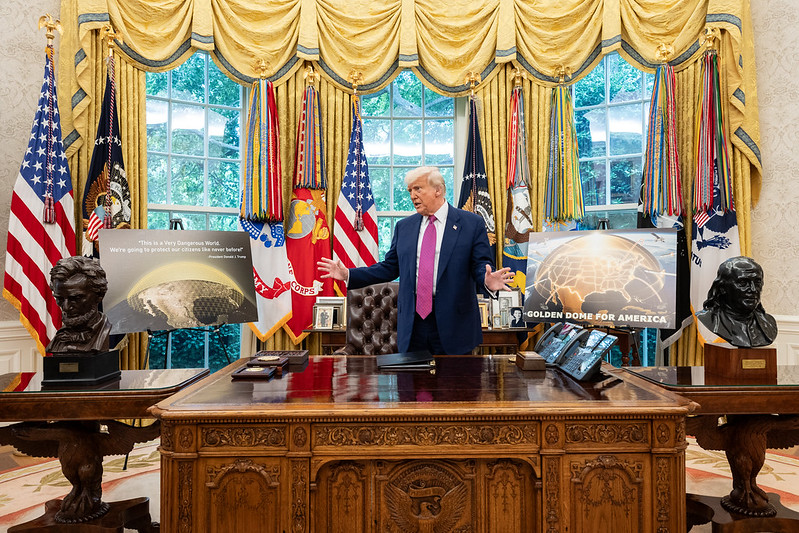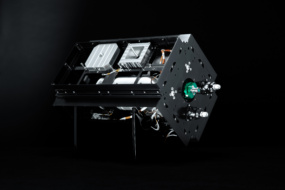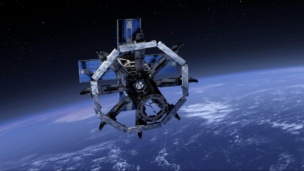China warned the Trump administration’s Golden Dome missile defense system could kick off an international arms race in space, and urged the US to abandon the program.
The pushback from China follows an announcement from President Donald Trump on Tuesday that he had selected a plan for the system, appointed Space Force vice chief Gen. Michael Guetlein to lead the program, and included $25B for Golden Dome in a bill that has yet to pass Congress.
China’s position: China Foreign Ministry spokesperson Mao Ning said Wednesday that Beijing is “gravely concerned” about the project. She also alleged that putting interceptors into orbit is an offensive action that “violates the principle of peaceful use in the Outer Space Treaty.”
“The project will heighten the risk of turning the space into a war zone and creating a space arms race, and shake the international security and arms control system,” she said in a press briefing. “This is yet another ‘America First’ initiative that puts the US’s absolute security above all else.”
The orbital battlefield: As both China and the US ramp up militaristic tech and rhetoric in orbit, deterrence in the space domain is becoming more uncertain, according to a report released this week by the US Air Force China Aerospace Studies Institute.
The report studied 10 considerations for how effective deterrence would be. Of the 10, the report found that only two factors actually increase US deterrence of Chinese actions in orbit:
- Military balance: The US still has a more powerful military than Beijing.
- Space reliance: China is launching a number of satellites, so any action that makes space more hostile (including the creation of space debris through deliberately impacting a satellite) could hurt its own assets.
Next steps: The report recommended a few things to better deter China in orbit, including:
- Making US space assets more resilient;
- Increasing space domain awareness to better understand attribution and intent in orbit.





